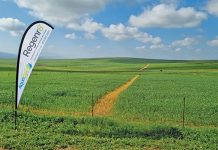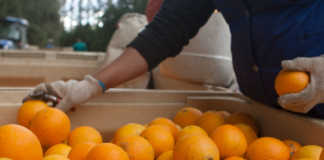Severe rain damage caused the closure of major roads in the Lower Albany district, which disrupted transport and farming operations in the area. “The R72 is closed to traffic due to the imminent collapse of the Kasouga River bridge,” said Ndlambe councillor Jocelyn Guest. “With the N2 closed, this is a disaster: no big trucks can get through to make deliveries.”
Extensive erosion to farm access roads halted or disrupted operations and forced farmers to make emergency repairs to keep important routes open. “Roads are washed away, causeways are gone and farmers are trying to patch roads to allow vital traffic through,” said Guest. “Companies are reluctant to deliver diesel and fetch milk, the local Charlgrove cattle sale was postponed, people cannot get to work and children are not at school.”
The devastation has seriously inconvenienced Lower Albany farmers, such as John Tarr, who was prevented from monitoring his stock during calving due to damage to the Vaalvlei access road. “My operations have come to a complete halt,” he said.
Fellow farmer Justin Stirk said that damaged roads had affected all types of farming in the area and that in order to continue operating, farmers had repaired some of the damage themselves.
“We’ve had to do some work to roads because some places are completely washed away,” he said. “Farmers couldn’t get milk out, and it has affected pineapples, upcoming chicory crops and delivery of milk, feed and diesel.” Geoff Bladen, who also farms in the area, said that thanks to their own ingenuity, most farmers had been able to transport their products. “Farmers are a resourceful bunch. They’ve sort of kept the roads just passable,” he said. “We’ve got huge sinkholes, but most farmers have been able to get their milk and pineapples out.”












